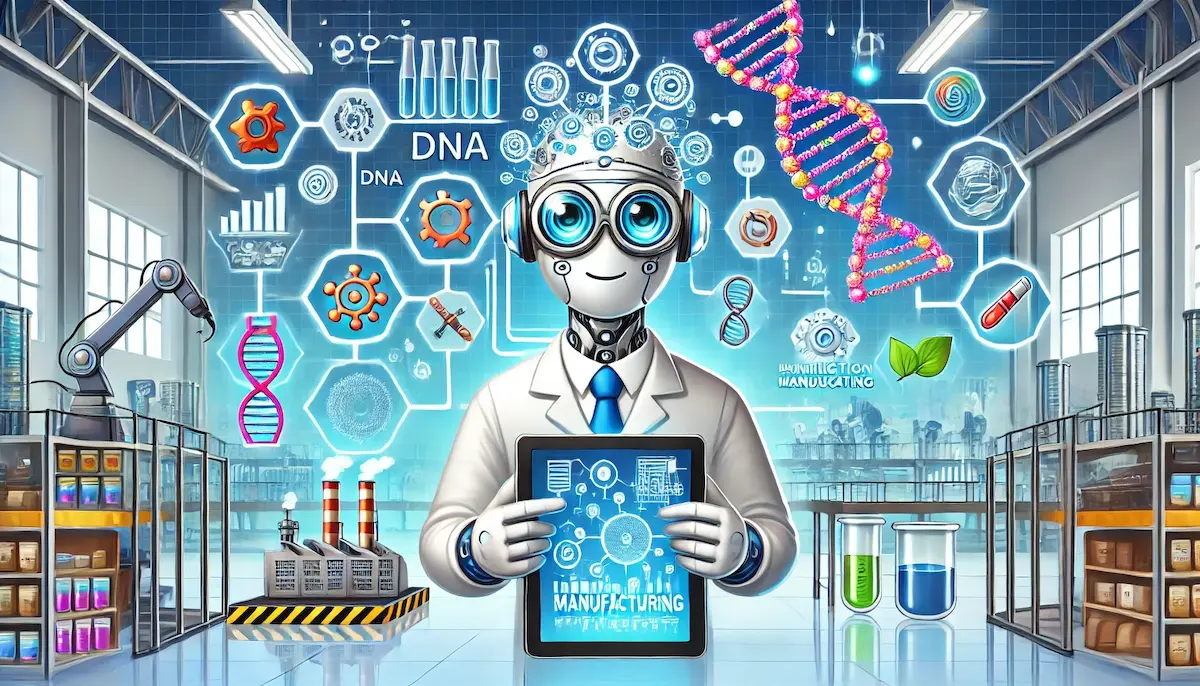Biotechnology manufacturing is a complex and highly specialized field that involves the production of biologically based products, such as pharmaceuticals, vaccines, and biologics. These products are derived from living organisms, making their production processes distinct from traditional chemical manufacturing. Let’s explore what biotech manufacturing entails, its key processes, and its significance in the industry.
What is Biotech Manufacturing?
Biotech manufacturing refers to the process of producing products that are based on biological systems or organisms. This includes everything from cell cultures and fermentation processes to the purification and formulation of biologics. The products manufactured in the biotech industry are used in a variety of fields, including medicine, agriculture, and environmental management.
Unlike conventional manufacturing, which relies on chemical synthesis, biotech manufacturing uses living cells—often genetically modified microorganisms, plants, or animal cells—to produce complex molecules like proteins, enzymes, and antibodies. These biological products are typically used for therapeutic purposes, diagnostics, or as industrial enzymes.
Key Processes in Biotech Manufacturing
Biotech manufacturing involves several key processes that ensure the production of high-quality, safe, and effective products:
Upstream Processing
Upstream processing refers to the initial phase of biotech manufacturing, where biological materials, such as cells or microorganisms, are cultivated to produce the desired product. This involves:
- Cell Culture or Fermentation: Cells are grown in controlled environments, such as bioreactors, where they are provided with the necessary nutrients and conditions to proliferate and produce the target product.
- Genetic Engineering: In some cases, cells are genetically modified to produce specific proteins or compounds. This is a critical step in the development of biopharmaceuticals like insulin or monoclonal antibodies.
- Media Preparation: The growth media, which provides the nutrients for the cells, must be carefully prepared and optimized to support efficient cell growth and product yield.
Downstream Processing
After the upstream processing, the product must be purified and refined through downstream processing. This stage involves:
- Harvesting: The cells or the product they produce are collected from the culture medium. This could involve separating cells from the liquid culture or extracting the product directly from the cells.
- Purification: The product is then purified to remove impurities, such as unwanted proteins, DNA, or other cellular debris. Techniques like chromatography, filtration, and centrifugation are commonly used.
- Formulation: After purification, the product is formulated into its final form, such as a liquid, powder, or tablet. This step may also involve adding stabilizers or preservatives to ensure the product’s stability and efficacy.
Quality Control and Assurance
Throughout the manufacturing process, stringent quality control (QC) and quality assurance (QA) measures are implemented to ensure that the product meets all required standards. This includes regular testing for purity, potency, and safety, as well as compliance with regulatory requirements.
Scaling Up and Manufacturing
Once the manufacturing process is optimized in a laboratory or pilot scale, it must be scaled up for commercial production. Scaling up involves increasing the production volume while maintaining the same level of quality and consistency. This is a critical challenge in biotech manufacturing, as larger-scale processes can introduce variability and complexity.
Packaging and Distribution
Finally, the product is packaged under sterile conditions to ensure its safety and stability during transportation and storage. Proper packaging also includes labeling that meets regulatory requirements, providing important information such as dosage, storage conditions, and expiration dates.
Importance of Biotech Manufacturing
Biotech manufacturing is essential for several reasons:
Producing Life-Saving Therapies
Many of the products manufactured in the biotech industry are critical for treating diseases, including cancer, diabetes, and autoimmune disorders. Biotech manufacturing enables the large-scale production of these life-saving therapies, making them accessible to patients worldwide.
Advancing Medical Innovation
Biotech manufacturing is at the forefront of medical innovation, enabling the production of cutting-edge therapies, such as personalized medicines, gene therapies, and advanced biologics. These innovations have the potential to revolutionize healthcare by offering more effective and targeted treatments.
Supporting Global Health
The ability to manufacture vaccines and other biologics on a large scale is crucial for responding to global health challenges, such as pandemics. Biotech manufacturing plays a vital role in ensuring that effective vaccines and treatments are available to combat infectious diseases.
Economic Impact
The biotech manufacturing industry contributes significantly to the economy by creating high-skilled jobs and driving technological advancements. It also supports a wide range of industries, from pharmaceuticals to agriculture, through the production of biotech products.
Conclusion
Biotech manufacturing is a critical and highly specialized field that enables the production of innovative and life-saving products. By leveraging advanced biological processes and maintaining rigorous quality standards, biotech manufacturing ensures that these products are safe, effective, and available to those who need them most.
Blockfine thanks you for reading and hopes you found this article helpful.
